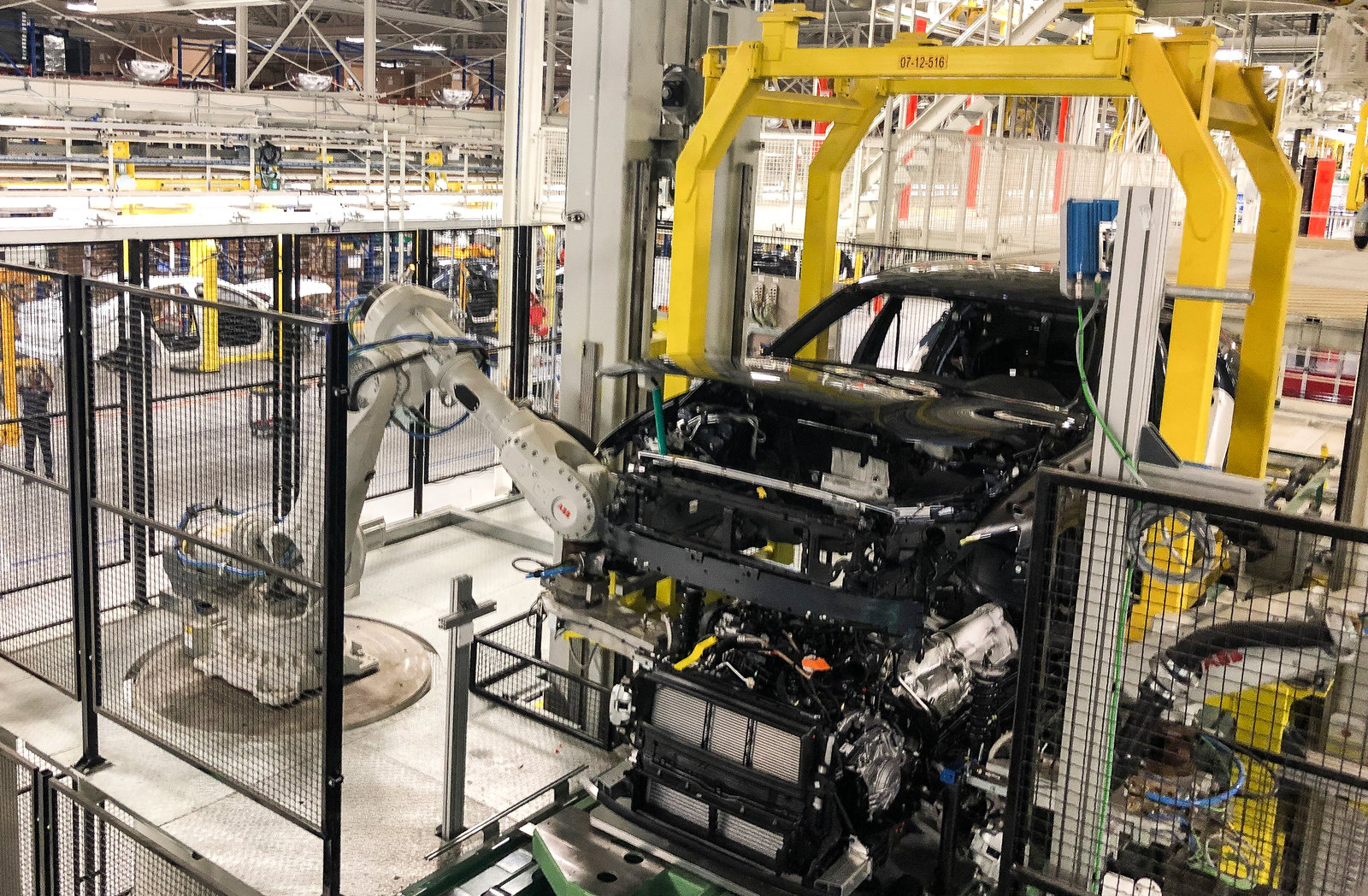Even In The Robot Age, Manufacturers Need The Human Touch
"Robots have revolutionized auto manufacturing, making plants safer and products more reliable — and reducing the number of people involved in the process. But walk inside a modern auto plant, and you'll quickly realize that robots have hardly replaced the human touch — at least, not in some areas."
more reliable — and reducing the number of people involved in the process. But walk inside a modern auto plant, and you'll quickly realize that robots have hardly replaced the human touch — at least, not in some areas."
"Volvo's car plant in Ridgeville, S.C., which opened last year, provides an object lesson. The facility produces the S60, a luxury sedan, for the U.S. market as well as for export."
"The beginning of the production line is highly automated; in the first of three large buildings, robots outnumber human workers 300 to 200. But the end of the process is dominated by people."
"Let's start with the robots. Behind a safety fence, a half-dozen robot arms move in coordination as they spot-weld a car body together, whirring softly. The lights in this section of the massive building are dimmed because the robots don't require much light to complete their work."
Robots are indisputably better than humans at some tasks. They're precise and consistent, and they excel at repeating an identical motion over and over again.
Jeff Moore, Volvo's vice president of manufacturing in the Americas, says that in deciding which jobs to assign to a robot, the company starts by focusing on monotonous, physically demanding work — especially anything that carries safety concerns.